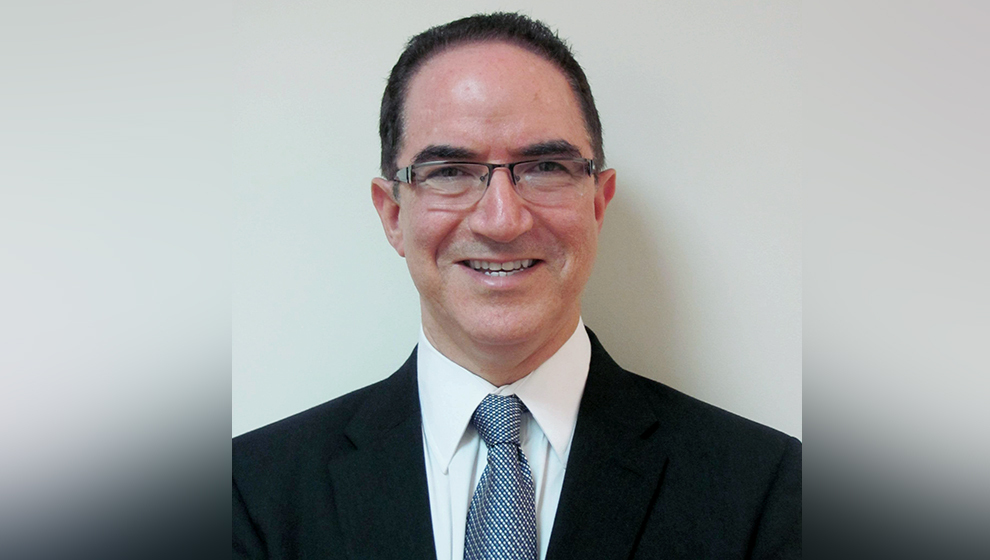Your firm is characterised in part by the variety of clients it represents, from established global companies to start-ups and family-owned firms. How do you deal with the diversity that arises from the professional relationships with different types of clients?
When you serve such a polarised variety of clients, there is no option other than adapting the way you comport yourself to the kind of client business you are working with, and, specifically, to its organisational culture. Together with conducting legal background checks, we always try to learn as much as possible about each of our client’s field of activities and business environment. This helps us better understand the client’s individual needs and provide better service.
In order to properly conduct ourselves when working with various clients, we use the knowledge we have amassed over the years and adapt it to the kind of organisation we are representing. For example, when representing a multinational company, we always account for the organisational hierarchy and operate in complete accordance with it. On the other hand, when we represent a start-up, we often find ourselves working simultaneously with the management and with investor representatives. When we represent certain family-owned businesses we will be sensitive to the fact that, often, important decisions are also made by family members and not just by the CEO or the board.
Aside from this, the extensive regulation in Israel forces us to constantly learn and keep up with the regulations for the represented business’s specific sector. This is no simple task and requires time and resources, but this cannot be forgone if we want to provide excellent legal service.
Speaking as someone who often appears in Israeli courts, how resolvable are business disputes through arbitration outside of the courts prior to appealing or directly after the beginning of a legal confrontation?
In my experience, complex disputes that deal with large sums of money are not resolved as long as the parties are unwilling to compromise. Before appealing to the court and even after the beginning of court proceedings, when each party believes in its own righteousness and is sure of its victory, the parties are usually not yet ready for compromise. For this reason, the chances at this stage of achieving an agreed-upon settlement are low. We have had cases in which we were able to solve disputes at an early stage, even before petitioning the courts, but these were the exceptions. In our experience, the suitable time for compromise, as far as the two sides are concerned, is at a later stage of the judicial process – following massive discovery of documents, an attempt to reach a settlement at mediation, and submission of witnesses’ affidavits.
When you serve such a polarised variety of clients, there is no option other than adapting the way you comport yourself to the kind of client business you are working with.
At this late stage, many of the “cards” have been exposed, each party can assess their risks and prospects in the proceedings and there may be better chances of reaching a reasonable compromise.
In your experience in negotiating for tech-focused clients, is there a common denominator for what investors like and what, more than anything else, will deter them from entering into a deal?
After years of representing investors from Israel and abroad, we have learned that investors are always interested in product innovation and uniqueness at the company they are investing in and its chance of sweeping the market.
Having said that, it is just as important to investors to understand the personality and state of mind of the entrepreneurs at the companies they invest in. Investors inject companies with money for the sole purpose of seeing return on their investment. That is their only goal. Entrepreneurs do not always manage to get into the investors’ heads and comprehend this. Pointless stubbornness on the part of entrepreneurs during negotiation of investment terms and company operations of the kind that might reveal them as “problematic personalities” in the eyes of the investors, may result in investors backing out of their intentions to invest. I always tell entrepreneurs that they have the right to quarrel with their investor only once – just before the Exit.
Your law firm is the Israeli member of Legal Netlink Alliance. What gives you this status?
LNA, of which we are members, has over 100 law practices scattered over the world. Most members’ are leading law firms with reputations and strong professional credentials in their countries in addition to ample experience working with international clients. The LNA Network holds professional conferences around three times a year. At these conferences we are exposed to, among other things, regulations and rulings from many countries and global developments affecting various legal specialties.
I always tell entrepreneurs that they have the right to quarrel with their investor only once – just before the Exit.
Being part of the LNA network enables us to obtain valuable information for our clients in Israel and abroad as well as the ability to refer any client in need of legal services in a certain country to the network’s law firms there. Usually, we are personally acquainted with the relevant lawyer abroad who will represent the referred client.
We are proud of the fact that in the winter of 2020, just before the outbreak of the COVID-19 pandemic, our firm hosted the LNA European conference, which was held in Israel for the first time. The conference was a great success.
A fraction of a second can make all the difference in a conversation. How important is reaction time in negotiation management, legal proceedings, or any kind of legal service provided to a client?
If the differences in various negotiation cultures could be classified, you could say that in general, business negotiations with people from European countries are more pertinent and less forceful in many cases than negotiations with Israeli businessmen, which often may deteriorate to pointless forceful conflict.
Occasionally, in these instances, pointless conflict during negotiation to settle a business dispute should be stopped quickly, even if this may convey weakness. I have in the past, during heated negotiations, asked for a recess to consult with my client and implore them to calm down or even concede on non-fundamental issues so that the achievement of compromise would not be hampered. This kind of intervention is not always welcomed by the client in the heat of the moment, but after de-escalation clients tend to appreciate it very much.
[ymal]
You have served on the boards of many businesses, including public companies. What would you consider to be sound management practice, and what is the most important insight a director from the board should give his company?
By law, a director must always act solely in the interest of the company. Nevertheless, in practice this is not always so easily done. Often, directors are sure they need to act on behalf of whoever appointed them. Directors in Israel are appointed and serve on many occasions as part of a network of interests. Unfortunately, many directors are not aware of their great liability and immense legal exposure as directors.
In a company that our firm served as legal counsel, an interested party transaction was discussed by the board. During the board meeting, I stated my opinion that a fairness option should be received for the transaction and its terms before being brought to the board’s approval.
Most of the directors agreed with me, and the proposal was accepted. The director interested in the transaction, who had much influence at the company, was very angry with me and saw me as responsible for delaying the transaction. After time passed, he phoned me and apologised. He had read about a company that had approved a similar transaction without receiving such an opinion, and the directors were sued for tens of millions of dollars.
Your firm represents many employers in labour disputes. How much has regulation changed in this field in the last few years?
I believe that a significant proportion of the employers in the market have not yet internalised the enormous change made in Israel in this field. Over the past few years, we have seen a process of new and extensive legislation in labour law in Israel. Alongside rightful protection accorded to disempowered employee populations by the new laws, it is also evident that there is a trend of imposing an unreasonable and unjust burden on employers to the extent of “criminalisation” of a fundamental part of the labour laws.
Today, before making any managerial decision regarding an employee, every employer must check if it is even legal. Furthermore, there are the labour court rulings on the topic of employees’ right to organize, which must not be hindered. All this brings us to the realisation that this field has fundamentally changed from what it was just a few years ago, and employers today must consider their actions with much caution.
Today, before making any managerial decision regarding an employee, every employer must check if it is even legal.
How important is it to brainstorm with the client, in your opinion?
It is very important to think together with the client, to understand what motivates them and their business considerations. However, when these conflict with the law, a lawyer must stand up to the client, even if he is an influential manager or businessman, and even if this may result in termination of representation. I have had such disagreement with clients. It is my experience that, in the long run, a client will appreciate a lawyer that has its back more than a lawyer that cuts corners.
Does the management of family-owned businesses create unique problems? What is, in your opinion, the correct path for a family-owned business to follow?
Working with family-owned businesses is my baby. The inherent challenge and difficulty in a family-owned business of achieving success while preserving the family was what attracted me to this this topic many years ago. During the past seven years I have served as the Academic Director and lecturer at the Business and Family studies program initiated by the Bar Ilan University.
It is no easy task to be part of a family that owns a business, whether you work at the business or outside of it. The fear of disputes that may damage the business and family relations is ever-present, even when all seem well.
In this regard, I would advise to always have a binding written agreement between family members to settles relations and serve as a safeguard against conflicts that may hurt the family and do damage to the business; the earlier the better.
The fear of disputes that may damage the business and family relations is ever-present, even when all seem well.
You are licensed to practice law both in Israel and in the US and have worked in a prominent New York law firm, in addition to being involved in many transactions between Israeli and American companies. What would you say are the differences between Israeli and American companies regarding how business is conducted?
The conduct in American companies is structured in a way that, to Israelis, may seem cumbersome at times. Many parties are involved in the organisation in almost all fundamental business occurrences and there is an orderly process of subject-learning and voicing of opinions by all parties, who are by definition of their roles in the organisation supposed to be involved in the finalisation of said business events. Additionally, the process of decision-making itself is orderly, as mandated by the organisation’s nature.
This kind of conduct is not common in Israeli companies, where decision-making is often done hastily by a small group of senior staff. It is noteworthy that today, the more that Israeli companies and tech-focused companies in particular start to interact with American businesses, the more they are quickly learning how to conduct business in the American style.
About Moshe Kahn
Who were your professional teachers and what did you learn from them?
My mentor during my internship and in the early stages of the legal practice was the late Eli Zohar Adv., who apart from being a famous lawyer in Israel not only had excellent professional skills but was also blessed with praiseworthy personal attributes. Eli Zohar was definitely a lawyer deserving of the title “a lawyer and a gentleman”. I had the opportunity to work with him and learn from him not only during my internship, but also afterwards as I continued at the Seligman firm. I learned the art of litigation and cross-examining witnesses from Eli, as well as the obligation to respect the other party even when waging a fierce legal war. From attorneys Pinhas Rubin and Moriel Matalon, whom I worked beside at the Gornitzki firm, I learned how to engage in complex commercial transactions. The late Phillip Mandelker, whom I worked alongside at the Rosenman firm in New York, taught me a lot about commercial litigation in the US. I am grateful to all of my professional teachers for all they have taught me.
How would you say your firm compares with its larger competitors, and what is the added value your practice gives your clients?
As one who began his legal practice in the largest firms in Israel and the US, I am well acquainted with the advantages and drawbacks of their services. A large firm is a brand name and has a relatively large array of professionals to offer clients, which provides a sense of security. However, large firms have high overhead costs which raise rates, and for this reason are not right for all clients. Another fundamental difference between large firms and small firms (like ours) is in the access to the senior partner involved in the case or transaction.
I often hear from clients that came from large firms that they felt “lost” in these large legal organisations, and that in the end the lawyer that worked with them had two or three years of experience. We do our best to make our experience and skills available to all our clients. I am involved in almost every case at our firm and clients have almost immediate access to me.
Easy access, quick response, and good inter-personal communication are touted by your firm’s website. How important are they for the clients of a commercial law firm?
Business life entails many surprises and stressful events that require immediate action. Confrontational events like lawsuits or investigations, as well positive events like the maturing of company acquisition or sales negotiations, may create a sense of urgency in clients, requiring immediate consultation with a lawyer. I have found myself, more than once, when on my way home after a long day at work, redirecting to an urgent meeting with a client because of such developments. We emphasize availability and quick professional response for all our clients, small and large, and we know from our experience that our clients appreciate this very much, and that it is one of the most important issues for our clients.
A Hebrew version of this article originally appeared in TheMarker.
Moshe Kahn, Founder
Moshe Kahn Advocates
Address: Amot Investments Tower, 7th Floor, 2 Weizmann St., Tel Aviv 6423902, Israel
Telephone: +972 3-691-4775
Fax: +972 3-691-4706
Email: mk@kahn.co.il
Moshe Kahn has more than 20 years of expertise as a business lawyer providing legal counseling and representation to local and foreign companies, including leading multinationals operating in Israel. He is also a member of key committees at the Israeli Bar Association, the author of many professional articles, and a regular organiser and speaker at conferences at the Bar Ilan University.
Moshe Kahn Advocates deal with an array of legal concerns including commercial law subjects, corporation law and commercial litigation, commercial contracts and international dealings, representation of employers in labour disputes, family-owned businesses and many more areas. Moshe Kahn Advocates is the Israel law firm of Legal Netlink Alliance, an internationally recognised organisation of independent law firms with more than 100 law offices located worldwide.





















